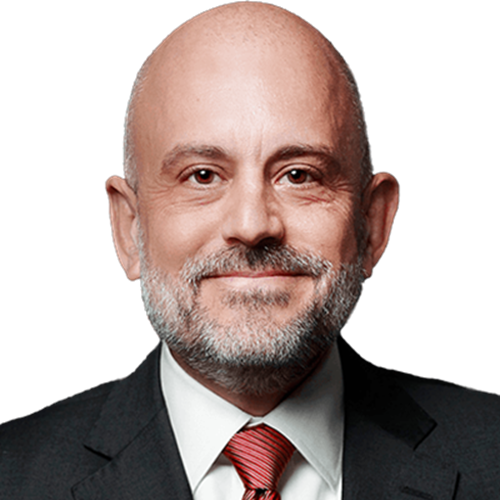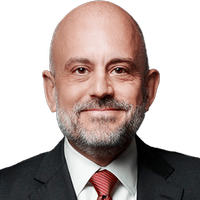How Business Owners Can Avoid Four Big Financial Planning Mistakes
Lax financial planning when it comes to taxes, risk management, exit plans and cash flow can hinder the growth and success of your business.

Profit and prosper with the best of Kiplinger's advice on investing, taxes, retirement, personal finance and much more. Delivered daily. Enter your email in the box and click Sign Me Up.
You are now subscribed
Your newsletter sign-up was successful
Want to add more newsletters?

Delivered daily
Kiplinger Today
Profit and prosper with the best of Kiplinger's advice on investing, taxes, retirement, personal finance and much more delivered daily. Smart money moves start here.

Sent five days a week
Kiplinger A Step Ahead
Get practical help to make better financial decisions in your everyday life, from spending to savings on top deals.

Delivered daily
Kiplinger Closing Bell
Get today's biggest financial and investing headlines delivered to your inbox every day the U.S. stock market is open.

Sent twice a week
Kiplinger Adviser Intel
Financial pros across the country share best practices and fresh tactics to preserve and grow your wealth.

Delivered weekly
Kiplinger Tax Tips
Trim your federal and state tax bills with practical tax-planning and tax-cutting strategies.

Sent twice a week
Kiplinger Retirement Tips
Your twice-a-week guide to planning and enjoying a financially secure and richly rewarding retirement

Sent bimonthly.
Kiplinger Adviser Angle
Insights for advisers, wealth managers and other financial professionals.

Sent twice a week
Kiplinger Investing Weekly
Your twice-a-week roundup of promising stocks, funds, companies and industries you should consider, ones you should avoid, and why.

Sent weekly for six weeks
Kiplinger Invest for Retirement
Your step-by-step six-part series on how to invest for retirement, from devising a successful strategy to exactly which investments to choose.
Many entrepreneurs find themselves underserved when it comes to financial planning. They often rely too heavily on their CPA for financial advice, primarily due to the close working relationship that exists between business owners and their bookkeepers.
As someone who has been running businesses for the past 30 years, I have witnessed firsthand the void that many business owners have in terms of financial planning.
Entrepreneurs, by nature, are constantly occupied with running their businesses and wearing multiple hats throughout the day just to keep things running smoothly. Consequently, they may overlook the importance of having a financial plan and instead manage things on the go. However, this approach is not recommended considering the significant time, money and effort invested in a business.
From just $107.88 $24.99 for Kiplinger Personal Finance
Become a smarter, better informed investor. Subscribe from just $107.88 $24.99, plus get up to 4 Special Issues

Sign up for Kiplinger’s Free Newsletters
Profit and prosper with the best of expert advice on investing, taxes, retirement, personal finance and more - straight to your e-mail.
Profit and prosper with the best of expert advice - straight to your e-mail.
1. Tax planning mistakes
One common mistake entrepreneurs make is assuming that as long as they meet payroll, stay current on taxes and receive payments from customers, their business is financially healthy. While these factors may be important from a CPA or bookkeeping standpoint, they do not necessarily address the broader concerns of financial planning.
CPAs play a vital role in any business by ensuring compliance with IRS requirements. However, what I often find is that most CPAs primarily focus on looking backward, reviewing the previous year or quarter, to meet tax filing deadlines. Financial planning, on the other hand, is a forward-looking process aimed at reducing tax liabilities and finding ways to increase the value or capabilities of the company.
For example, how company profits are distributed to business owners is an essential consideration for potentially lowering taxes. Many business owners mistakenly take their profits entirely as income, which may not be the most tax-efficient method of distribution. Proper planning can help strike a balance between income and profits as the owner of the company.
Moreover, choosing the right tax structure for your business, such as an S corp or C corp, is a commonly missed opportunity to manage tax liabilities effectively. Entrepreneurs often adopt a certain structure early on and neglect to adjust it as their company evolves. Proper planning can help determine the most suitable structure not only for tax purposes but also for long-term sustainability.
2. Risk assessment mistakes
Another critical aspect of financial planning that entrepreneurs tend to overlook is risk assessment. Running a business comes with inherent risks, and they can vary from one company to another. However, there are three major risks that can potentially devastate a business overnight if not addressed: death, disability and divorce (in the case of business partners).
Many businesses rely heavily on the individual owner or a small group of key individuals who drive the company's success through their vision, leadership and hard work. If these individuals are unable to fulfill their roles due to death or disability, the business can suffer significantly.
Negative consequences may include employee and customer attrition, family disputes, partnership divorce and cash flow problems. As part of a comprehensive financial plan, risk can be mitigated or transferred to an insurance company through appropriate coverage for death or disability.
Furthermore, when launching a new business or forming a partnership, entrepreneurs often visualize positive outcomes and sometimes neglect to consider what can derail their vision. However, having a financial plan can include agreements and other triggering events that can help facilitate a smooth outcome when facing such events.
3. Business exiting mistakes
Another common mistake made by business owners is treating the business exit as merely a transaction rather than a transition. Exiting a business involves more than just the sale itself; it requires planning for life after the exit. Neglecting post-exit planning can leave business owners unprepared for their financial and personal futures.
When contemplating the sale of a business, the owners frequently overvalue their businesses, leading to unrealistic expectations regarding the outcome of the sale. It is crucial to obtain an accurate valuation from professionals to set a realistic asking price.
Additionally, many business owners underestimate the time and effort required to prepare for a successful exit. The truth is, it is natural to have emotional ties to a business that can sometimes drive behavior and cloud judgment. Preparing for a sale can take years of planning if done right and should be incorporated into the overall financial planning process.
The importance of advance planning and preparation cannot be understated. Consideration should be given to your financial well-being as well as your personal goals beyond the business.
Avoiding these mistakes with the help of a professional team of advisers can help improve the chances of a successful business exit and ensuring a smooth transition into life after the business.
4. Cash flow mistakes
Managing cash flow is a vital aspect of financial planning that entrepreneurs should prioritize. It is essential to align the handling of cash inflows and outflows with the long-term vision for the company. One common mistake is succumbing to the pressure of spending money to avoid tax liabilities. While tax planning is essential, it should not be the sole driving factor behind financial decisions.
Entrepreneurs should remember that the primary goal of their business is to build value and generate revenue. A well-designed financial plan keeps the business owner focused and enables them to evaluate opportunities based on their alignment with the overall plan.
Moreover, the fear of missing out (FOMO) can also lead to poor cash flow management. Entrepreneurs may be tempted to seize every opportunity that comes their way without considering its compatibility with their business vision. Without a clear financial plan, these impulsive decisions can steer the business off course and hinder its long-term growth.
To ensure effective cash flow management, entrepreneurs should establish a strategic cash flow strategy that aligns with their business objectives. This process involves forecasting and maximizing their cash flow, identifying potential gaps and understanding their opportunity costs to make informed decisions about how to hold and use their cash. By having a well-defined cash flow plan, entrepreneurs can allocate resources efficiently, reduce financial stress and build wealth inside and outside of their business while helping to maintain stability during both prosperous and challenging times.
A cash flow strategy is an integral part of an overall financial plan and acts as a roadmap, guiding your financial decisions and helping you make the most of the cash you have flowing through your business.
Don't let inadequate financial planning hinder the growth and success of your business. Take the necessary steps to avoid these common financial planning mistakes and secure a prosperous future for your entrepreneurial venture.
By seeking expert advice from professionals experienced in financial planning for entrepreneurs, you can gain valuable insights and ensure that your financial plan is designed to help you maximize your available resources.
To learn more about how to avoid these mistakes and to begin maximizing your cash flow, you can download The Cash Flow Guide for entrepreneurs.
Securities offered only by duly registered individuals through Madison Avenue Securities, LLC. (MAS), Member FINRA &SIPC. Advisory services offered only by duly registered individuals through Skrobonja Wealth Management (SWM), a registered investment advisor. Tax services offered only through Skrobonja Tax Consulting. MAS does not offer Build Banking or tax advice. Skrobonja Financial Group, LLC, Skrobonja Wealth Management, LLC, Skrobonja Insurance Services, LLC, Skrobonja Tax Consulting, and Build Banking are not affiliated with MAS.
Skrobonja Wealth Management, LLC is a registered investment adviser. Advisory services are only offered to clients or prospective clients where Skrobonja Wealth Management, LLC and its representatives are properly licensed or exempt from licensure.
The firm is a registered investment adviser with the state of Missouri, and may only transact business with residents of those states, or residents of other states where otherwise legally permitted subject to exemption or exclusion from registration requirements. Registration with the United States Securities and Exchange Commission or any state securities authority does not imply a certain level of skill or training.
The appearances in Kiplinger were obtained through a PR program. The columnist is not affiliated with, nor endorsed by Kiplinger. Kiplinger did not compensate the columnist in any way.
Profit and prosper with the best of Kiplinger's advice on investing, taxes, retirement, personal finance and much more. Delivered daily. Enter your email in the box and click Sign Me Up.

Brian Skrobonja is a Chartered Financial Consultant (ChFC®) and Certified Private Wealth Advisor (CPWA®), as well as an author, blogger, podcaster and speaker. He is the founder and president of a St. Louis, Mo.-based wealth management firm. His goal is to help his audience discover the root of their beliefs about money and challenge them to think differently to reach their goals. Brian is the author of three books, and his Common Sense podcast was named one of the Top 10 podcasts by Forbes. In 2017, 2019, 2020, 2021 and 2022, Brian was awarded Best Wealth Manager. In 2021, he received Best in Business and the Future 50 in 2018 from St. Louis Small Business.
-
 Dow Adds 1,206 Points to Top 50,000: Stock Market Today
Dow Adds 1,206 Points to Top 50,000: Stock Market TodayThe S&P 500 and Nasdaq also had strong finishes to a volatile week, with beaten-down tech stocks outperforming.
-
 Ask the Tax Editor: Federal Income Tax Deductions
Ask the Tax Editor: Federal Income Tax DeductionsAsk the Editor In this week's Ask the Editor Q&A, Joy Taylor answers questions on federal income tax deductions
-
 States With No-Fault Car Insurance Laws (and How No-Fault Car Insurance Works)
States With No-Fault Car Insurance Laws (and How No-Fault Car Insurance Works)A breakdown of the confusing rules around no-fault car insurance in every state where it exists.
-
 For the 2% Club, the Guardrails Approach and the 4% Rule Do Not Work: Here's What Works Instead
For the 2% Club, the Guardrails Approach and the 4% Rule Do Not Work: Here's What Works InsteadFor retirees with a pension, traditional withdrawal rules could be too restrictive. You need a tailored income plan that is much more flexible and realistic.
-
 Retiring Next Year? Now Is the Time to Start Designing What Your Retirement Will Look Like
Retiring Next Year? Now Is the Time to Start Designing What Your Retirement Will Look LikeThis is when you should be shifting your focus from growing your portfolio to designing an income and tax strategy that aligns your resources with your purpose.
-
 I'm a Financial Planner: This Layered Approach for Your Retirement Money Can Help Lower Your Stress
I'm a Financial Planner: This Layered Approach for Your Retirement Money Can Help Lower Your StressTo be confident about retirement, consider building a safety net by dividing assets into distinct layers and establishing a regular review process. Here's how.
-
 The 4 Estate Planning Documents Every High-Net-Worth Family Needs (Not Just a Will)
The 4 Estate Planning Documents Every High-Net-Worth Family Needs (Not Just a Will)The key to successful estate planning for HNW families isn't just drafting these four documents, but ensuring they're current and immediately accessible.
-
 Love and Legacy: What Couples Rarely Talk About (But Should)
Love and Legacy: What Couples Rarely Talk About (But Should)Couples who talk openly about finances, including estate planning, are more likely to head into retirement joyfully. How can you get the conversation going?
-
 How to Get the Fair Value for Your Shares When You Are in the Minority Vote on a Sale of Substantially All Corporate Assets
How to Get the Fair Value for Your Shares When You Are in the Minority Vote on a Sale of Substantially All Corporate AssetsWhen a sale of substantially all corporate assets is approved by majority vote, shareholders on the losing side of the vote should understand their rights.
-
 How to Add a Pet Trust to Your Estate Plan: Don't Leave Your Best Friend to Chance
How to Add a Pet Trust to Your Estate Plan: Don't Leave Your Best Friend to ChanceAdding a pet trust to your estate plan can ensure your pets are properly looked after when you're no longer able to care for them. This is how to go about it.
-
 Want to Avoid Leaving Chaos in Your Wake? Don't Leave Behind an Outdated Estate Plan
Want to Avoid Leaving Chaos in Your Wake? Don't Leave Behind an Outdated Estate PlanAn outdated or incomplete estate plan could cause confusion for those handling your affairs at a difficult time. This guide highlights what to update and when.
